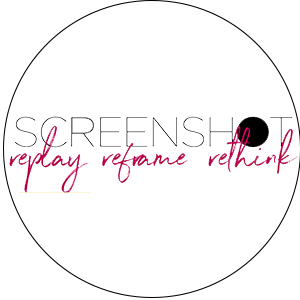More Complaints Than Compliments

Most of us try to be grateful for the feedback, even the negative kind

Recently a new contributor asked me to forward the feedback we received to his piece.
So I sent him the letters that came in. Unfortunately, the responses weren’t what he was hoping for.
“Thank you for sending,” he wrote back. “Did you not receive one positive one? It’s interesting — I personally received much positive feedback from many people, but it seems the letters the magazine received all disagreed with my piece.”
Then he asked: “Do you find that people are more inclined to write with gripes or “tainehs” than with compliments and accolades?”
The truth is that we’re lucky to get many warm, enthusiastic, complimentary letters, but we definitely get many more complaints than compliments. I don’t think this is because the majority of our readers find the magazine to be infuriatingly wrong or problematic. I also don’t think it’s because the majority of our readers are negative people who love to kvetch and criticize.
My theory is that it takes a lot of effort and energy to actually write in to a magazine, and you’re a lot more likely to expend the effort when you’re upset or angry.
I’d guess that most readers enjoy most of what they read. They might even think, “Wow, this writer did such a great job!” Then they turn the page and move on. Life happens. There are deadlines to meet and places to go and bills to pay. The compliments tend to fizzle out somewhere between Shalosh Seudos and car pool the next morning.
Complaints or criticism are different. They don’t fizzle quite as easily. If something made you angry or upset, you don’t forget so soon. You file a mental note to write that letter explaining why Columnist A was completely off the mark, or Contributor B totally misrepresented the issue, or that Inbox letter was the polar opposite of your experience, or the editors were so insensitive in their decision to run that piece. The note has the mental equivalent of highlighters and underlines or exclamation marks. And when the opportunity arrives to send off that letter, you actually do it.
How do the people on the receiving end deal with it?
Well, we have a writer who prints out any angry, negative letter submitted about his work and hangs it up proudly on his fridge. There’s a writer who responds personally and politely to readers who complain bitterly about his pieces, and will sometimes even continue the conversation on the phone.
We also have an editor who is admittedly sensitive, and therefore keeps a file of positive feedback to review every now and then for chizuk. And there’s at least one editor who loses sleep after a batch of particularly bruising letters comes in.
Most of us try to be grateful for the feedback, even the negative kind. It shows that our readers take us seriously. It shows that they have high standards for us. It shows that they value this publication enough that they’ve put aside time and effort to share their reactions. I think it also shows that we’ve created a space in our Inbox where people feel they can be heard, and where they can contribute to a communal conversation.
And at the end of the day, all feedback is welcome. Even negative letters must be embraced. The nature of this product is that there is a remove between its production and reception. We’re not there in your living room to watch you read, to see what resonates and what falls flat. We’re not able to eavesdrop on your Shabbos table conversations, to hear which pieces inspired or infuriated the most readers. So your letters — the friendly, the grateful, the fuming, the accusatory — all help us in our quest to produce a product that better reflects the interests and habits, likes and dislikes, values and principles of the people who read it.
So please, keep writing!
—Shoshana Friedman
Managing Editor
(Originally featured in Mishpacha, Issue 913)
Oops! We could not locate your form.


